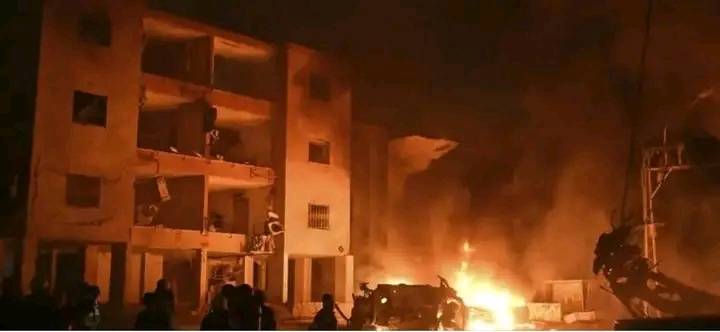Netanyahu Warns Tehran Residents to Evacuate as Israel-Iran Tensions Explode
In a dramatic escalation of Middle East tensions, Israeli Prime Minister Benjamin Netanyahu issued a chilling warning to the residents of Tehran, urging them to evacuate the city immediately. “We say to the citizens of Tehran: ‘Get out of the area now,’†Netanyahu declared during a televised address that sent shockwaves through global diplomatic and security communities.
This blunt message comes amid rapidly deteriorating relations between Israel and Iran, with both nations exchanging threats and intensifying military posturing. The world is watching closely as fears of a full-scale war mount, and social media platforms erupt with real-time speculation, expert analysis, and calls for international intervention.
The Israeli Prime Minister’s stark warning was seen by many as more than just rhetoric. Israeli intelligence sources have reportedly picked up on heightened military activity within Iran, including the movement of ballistic missiles and drone fleets. Netanyahu’s statement signals a potential pre-emptive strike or large-scale military operation, further raising alarm bells across the region.
As of now, there has been no official response from Iranian leadership, but Iranian media has condemned Netanyahu’s statement as psychological warfare. However, in the streets of Tehran, uncertainty is spreading fast. Online videos show long queues at gas stations, panic buying in supermarkets, and families desperately seeking to flee the capital. Hashtags like #TehranEvacuation, #IranIsraelConflict, and #MiddleEastWar are trending globally, amplifying the sense of looming crisis.
This latest confrontation is rooted in decades of animosity between Israel and Iran, with Tehran's continued support for proxy groups like Hezbollah and Hamas and its nuclear ambitions fueling Israeli concerns. Recent months have seen a surge in covert operations, cyberattacks, and alleged airstrikes in Syria and Iraq attributed to Israel, further igniting tensions. But Netanyahu’s public directive to Iranian civilians represents a rare—and deeply serious—turning point
.
U.S. and European officials are now scrambling to de-escalate the situation. Backdoor diplomatic efforts are reportedly underway in Ankara and Doha, though few expect quick breakthroughs. The United Nations has called for restraint on both sides, emphasizing the potential humanitarian catastrophe that a war between Iran and Israel could trigger.
Meanwhile, Israeli citizens are bracing for retaliatory strikes. Iron Dome batteries have been repositioned across key urban centers, and emergency protocols have been activated. In Tel Aviv, residents are stocking up on essentials, echoing the growing regional anxiety.
Global markets have already begun to react. Crude oil prices spiked overnight, reflecting investor fears that a war could disrupt oil supplies from the Gulf region. Analysts warn that further escalation could send markets into turmoil and push energy prices to record highs.
As the situation unfolds hour by hour, Netanyahu’s words continue to reverberate around the world: “Get out of the area now.†Whether this is a final warning before a devastating strike or a high-stakes psychological maneuver, one thing is certain—the Middle East is closer to the brink than it has been in decades.
Stay with us for the latest updates on the Iran-Israel conflict, breaking news from Tehran, and live analysis on this unfolding geopolitical flashpoint.




No comments yet
Be the first to share your thoughts!